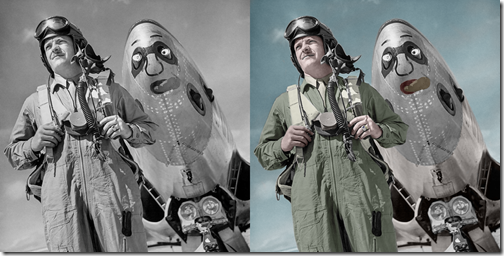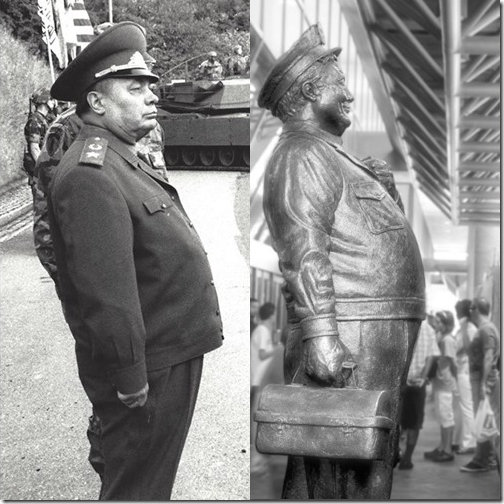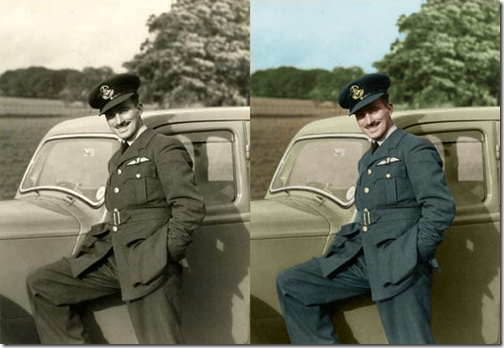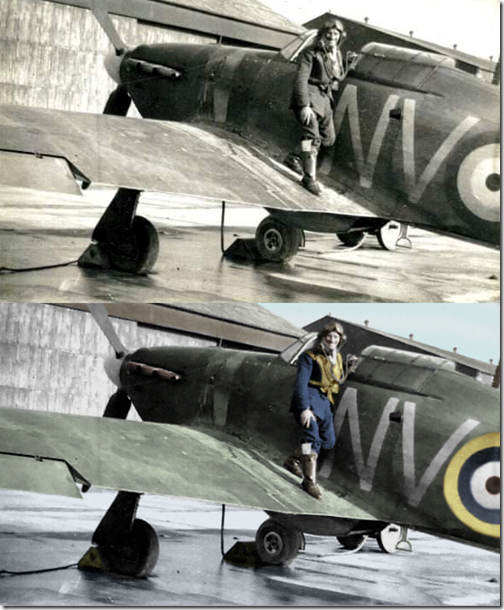Those Who Do Not Learn from History...
02 June 2020 • by Bob • History, Politics, Ponderings
There is an old adage which states, "Those who do not learn from history are doomed to repeat it," and I think that history is replete with examples that have proven that statement again and again. It is from that same perspective that I would like to share the following thoughts from one of President John F. Kennedy speeches, which are just as true for today's world as they were true in his circumstance almost 50 years ago.
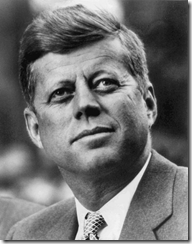 "The fires of frustration and discord are burning in every city, North and South, where legal remedies are not at hand. Redress is sought in the streets, in demonstrations, parades, and protests which create tensions and threaten violence and threaten lives.
"The fires of frustration and discord are burning in every city, North and South, where legal remedies are not at hand. Redress is sought in the streets, in demonstrations, parades, and protests which create tensions and threaten violence and threaten lives.
We face, therefore, a moral crisis as a country and a people. It cannot be met by repressive police action. It cannot be left to increased demonstrations in the streets. It cannot be quieted by token moves or talk. It is a time to act in the Congress, in your State and local legislative body and, above all, in all of our daily lives.
It is not enough to pin the blame on others, to say this a problem of one section of the country or another, or deplore the facts that we face. A great change is at hand, and our task, our obligation, is to make that revolution, that change, peaceful and constructive for all. Those who do nothing are inviting shame, as well as violence. Those who act boldly are recognizing right, as well as reality."
11 June 1963
You can read and listen to the full text of this speech on the JFK Library website by using the following link:
Radio and Television Report to the American People on Civil Rights, June 11, 1963
Coloring Historical Photographs - May 29th Edition
29 May 2020 • by Bob • Photography, History
I found another image on an aviation forum, that I thought might be fun to colorize. To be honest, I did it rather quickly, so there are less layers than I had been using for some of the other images that I had done.
Some time later, I discovered that this was an image from LIFE magazine of Major Wallace Frank, which was dated September, 1948. (That was kind of a surprise; I would have thought that it was from a decade later.)
Even though I found this image on an aviation forum, while I was researching the image to see who was in it, I found it's information at: https://bit.ly/2zC1aOb.
Condoning the Present to Condemn the Past
18 May 2020 • by Bob • Politics, History, Rants
I belong to a few veteran's forums that focus on different parts of my years in the military; e.g. one of the forums is for soldiers stationed in Germany during the 1980s, another forum is for soldiers who served in the 11th Armored Calvary Regiment, etc. Since I spent eight years as an Army linguist, another of the forums to which I belong is reserved for former military linguists, where the topics of discussion focus on general interest subjects that are centered around learning languages and using languages.
It is with that general spirit in mind that someone posted the following article, which describes how the People's Republic of China has been trying to destroy the native Tibetan language since it conquered Tibet in the 1950s:
Killing a language: China won't let Tibetans study in their own language
This behavior is nothing new for Communists. Lest we forget, the Soviet Union launched these same sorts of language purging campaigns in all of their republics during the USSR's reign of terror. When I was in language school, I knew several teachers from Uzbekistan, Ukraine, Kazakhstan, Azerbaijan, etc., all of whom were forced to learn Russian in school as their primary language. Some were given the option to learn a second language, with their options being English or their native language. (And all of them opted for English, because the "West was cool.") The goal behind suppressing native languages is to remake the culture of conquered territories resemble the culture of the conquering nation. With that in mind, China is simply following the decades-old Communist playbook by killing the local language of Tibet in order to force its citizens to sound more like they're Chinese. As the article that was posted suggests, this is a horrible human rights violation.
However, any topic with possible political ramifications in this day and age will attract any number of Internet trolls, and the forum thread in this particular situation was not immune to infiltration. The thread hijacker in this instance attempted to steer the conversation away from a discussion on China's present-day transgressions to accuse the United States of having suppressed the native languages of conquered indigenous peoples from a century ago. While English has undoubtedly been a required language in schools across the nation in the centuries since its inception, (to include schools on Native American reservations), the United States has also taken bold steps in its efforts to preserve indigenous languages through legislation like the Native American Languages Act of 1990.
However, as with most misguided social justice warriors in today's "react first / research later" generation, none of that mattered. Nor did China's transgressions. All that mattered was that the United States should be ashamed of itself, because: America = Bad. Bad. Bad.
Needless to say, I took exception to this troll's ill-informed and self-righteous attitude. I wholeheartedly believe that there is nothing wrong with saying "This or that bad thing happened in the past," just as there is nothing wrong with saying "This or that bad thing is happening right now." However, I also steadfastly believe that there is something wrong when someone tries to prevent people from discussing something bad that's happening right now by shutting down conversations and accusing people's ancestors of wrongdoing.
For the record, my Irish American ancestors had nothing to do with the moral crimes of the past that this knee-jerk troll seemed hell bent on pushing as the prominent issue. My ancestors arrived far too recently and settled nowhere near the affected areas, so I feel no personal responsibility to apologize for the sins and stupidity commited by the ancestors of unrelated strangers. However, I seriously resent the accusation that I am guilty of some sort of moral failure or hypocritical behavior when I look at an atrocity that is taking place in the present and correctly label that behavior as "atrocity" without simultaneously calling out every other similar atrocity across the history of humanity.
Let me be clear, the United States has done many, many things wrong during in its sordid past. I have not forgotten the faults of our nation's founding fathers, but even if I had, that should not prevent my ability to call out evil when I see it. When someone's myopic gaze is so laser focused on the past sins of others that they cannot or will not see what is happening today, then they are just as guilty of subjective hypocrisy as those who would forget or ignore the past.
Coloring Historical Photographs - May 16th Edition
16 May 2020 • by Bob • Photography, History
I found another interesting photo in an aviation forum, and I thought that I'd take a quick pass at colorizing it. It's a WWII Navy pilot standing on the wing of a Grumman Hellcat F6F, and despite some trying - I couldn't find out who he is.
The colorization isn't perfect, of course, but I think it adds a bit of depth to the story. There is something obvious that I got wrong, though: the undercarriage of the Hellcat should have been colored gray.
Of course, I could go back and fix that now, but... meh. Not today.
It's all about Perspective
05 May 2020 • by Bob • Ponderings, Politics, Health, History
One of my former colleagues recently posted a link to the following blog, which I thought does a great job of putting a lot of our current situation into a better perspective:
However, that blogger cites the source as unknown, so he wasn't the original author. With that in mind, I think it's fair to reprint the contents here:
For a small amount of perspective at this moment, imagine you were born in 1900. When you are 14, World War I starts and ends on your 18th birthday with 22 million people killed. Later in the year, a Spanish Flu epidemic hits the planet and runs until you are 20. Fifty million people die from it in those two years. Yes, 50 million.
When you're 29, the Great Depression begins. Unemployment hits 25%, global GDP drops 27%. That runs until you are 33. The country nearly collapses along with the world economy.
When you turn 39, World War II starts. You aren't even over the hill yet. When you're 41, the United States is fully pulled into WWII. Between your 39th and 45th birthday, 75 million people perish in the war and the Holocaust kills six million.
At 50, the Korean War starts, and five million perish.
At 55 the Vietnam War begins, and it doesn't end for 20 years. Four million people die in that conflict. Approaching your 62nd birthday you have the Cuban Missile Crisis, a tipping point in the Cold War. Life on our planet, as we know it, could well have ended. Great leaders prevented that from happening. As you turn 75, the Vietnam War finally ends.
Think of everyone on the planet born in 1900.
How do you survive all of that?
A kid in 1985 didn't think their 85-year-old grandparent understood how hard school was. Yet those grandparents (and now great grandparents) survived through everything listed above. Perspective is an amazing art. Let's try and keep things in perspective. Let's be smart, help each other out, and we will get through all of this.
That article, in summary, lists all the ways that the 20th century would have tried to kill you if you had been born in the year 1900. Between world wars and devastating diseases, the previous century was a terrible time to live.
And yet, I cannot help but think that the fatality numbers in that blog mostly reflect only the situations where the Western Hemisphere was somehow involved; they fail to address other mass repressions and genocides like:
- The Stalinist Purges in Russia (approximately 30 million deaths)
- The Chinese Cultural Revolution (approximately 30 million deaths)
- The Cambodian Genocide (approximately 2 million deaths)
- The Khmer Rouge repressions (approximately 2 million deaths)
- The Armenian Genocide (approximately 1.5 million deaths)
- The Rape of Nanking (approximately 500 thousand deaths)
- And I have no accurate sources to estimate the number of deaths in South America and Africa due to famines, diseases, genocides, and civil wars
In other words, if you had been born in the 1900, but you had lived somewhere other than North America during the 20th century, your chances of meeting with a violent death would have increased even more dramatically than the original article would suggest. I mention that because I met several people when I was stationed overseas who had survived many of those devastations; I knew Germans and Britons who had survived World Wars, depressions, repressions, famines, diseases, etc., yet today's over-privileged youths act like the world is ending if their Internet is too slow. As the writer of that blog suggested, it's all about perspective.
Anyway, it's food for thought.
![]()
Coloring Historical Photographs - April 7th Edition
07 April 2020 • by Bob • Photography, History
Someone posted the following photo of three WWII GIs to a Veteran's forum, and I thought it would make a good candidate for another attempt at coloring a historical photograph. I did a little bit of research about the uniforms, thankfully there are a lot of examples around.
I have no idea who these guys were, or what time in the war this was from; they look like three guys on leave enjoying life, though.
That's it for today.
General Snetkov versus Ralph Kramden
03 March 2020 • by Bob • History, Military, Humor
I've shared on here before about how I had been COL Abrams' translator on the DDR border when GEN Snetkov (the CDR of GSFG) in the late 80s) came through. (See Sometimes You Should Shut Up And Be In The Photo about that.) But something that I don't think I shared here before was how much I thought that GEN Snetkov looked like Ralph Kramden.
Coloring Historical Photographs - First Attempt
02 February 2020 • by Bob • Photography, History
I hang out in a few history-related forums, and I see a lot of great photos posted. Periodically, I see photos that someone has colorized, and I have occasionally thought, "I wonder how hard that is?" With that in mind, I saw a photo today that I thought seemed like it would be a great place to get started. Here is the before and after... it's not too bad for a first effort. There are a few historical inaccuracies that I learned about after the fact; for example: the buttons and belt buckle both should have been silver, not brass. (I obviously have room to improve.)
Colorizing that image was quickly followed by colorizing another image, which turned out okay, but I didn't have much to work with; the resolution of the source image wasn't that great. I did some research to get the colors right for the airplane and uniform, so I was trying to learn from my mistakes.
So there you have it - my first two attempts at coloring historical images. I obviously have lots of room to grow.
Remembering the Fall of the Wall
10 November 2019 • by Bob • Politics, Military, History
Today is November 9, 2019, which is exactly 30 years since the opening of the East German border; that event has since become known as "The Fall of the Wall." I was stationed along the East German border when it was opened, and I still have vivid memories of what the world was like at that time.
Tensions in East Germany had been building for some time, and thousands of East Germans had already fled through neighboring Warsaw Pact nations like Hungary and Czechoslovakia. When the border was opened unexpectedly on November 9, 1989, hundreds of thousands of East Germans poured into West Germany, where they were met with open arms by crowds of joyous West German citizens and US military personnel.
Within a few short years, the two Germanys were reunited, and the Soviet Union collapsed - which was the greatest manifestation of Communism's many, many failures. However, as a reminder of what the border was like before it opened, you might want to watch the following video.
Just two short months ago, a small group of my fellow 511th MI Company veterans and I met for a reunion at the former
Posing by the former border towers.
Not to beat a dead horse on the subject, but this is a chunk of the East German border fence that I have had in my office for the past three decades. I personally cut that section off the fence after the border was opened, and it's a nice little reminder that the plans of evil men everywhere will eventually fail.
The text is a little blurry, but it quotes Psalm 146:7 "The Lord sets the prisoners free,"
with the dates of 13 August, 1961 to 9 November, 1989.
More 511th Stories: Sometimes You Should Shut Up And Be In The Photo
28 August 2019 • by Bob • Military, History
In my last year at Fulda, I was chosen to be the translator for COL John Abrams, (commander of the 11th Armored Cavalry Regiment [ACR]), during a ceremony when GEN Boris Vasilievich Snetkov, (commander of the Group of Soviet Forces in Germany [GSFG]), and GEN Alexandrov (commander of the Soviet Military Liaison Mission in Germany [SMLM]) came across the border.
When the 11th ACR's official photographer for the ceremony heard that I was COL Abrams' translator, he asked if I had a top secret clearance; and if so, was he forbidden from taking my photo. Like many people, I hate having my photo taken, so I told him that it was against regulations to take a photograph of me.
Later on, however, COL Abrams followed up with me and said that I had done a great job as his translator, so he had instructed the photographer to make 8x10 copies of any of the photos from the ceremony for me to keep. (I think you can guess where this is going, even though I didn't at the time.)
The photographer called me when the proofs were ready, and when I showed up at his office, I discovered that he had - in fact - taken photos from dozens of angles, and yet he had managed to faithfully keep me out of every shot. The closest he came to having me in an image was during the
I learned an important lesson from this experience: sometimes you should just shut up and let someone take your
